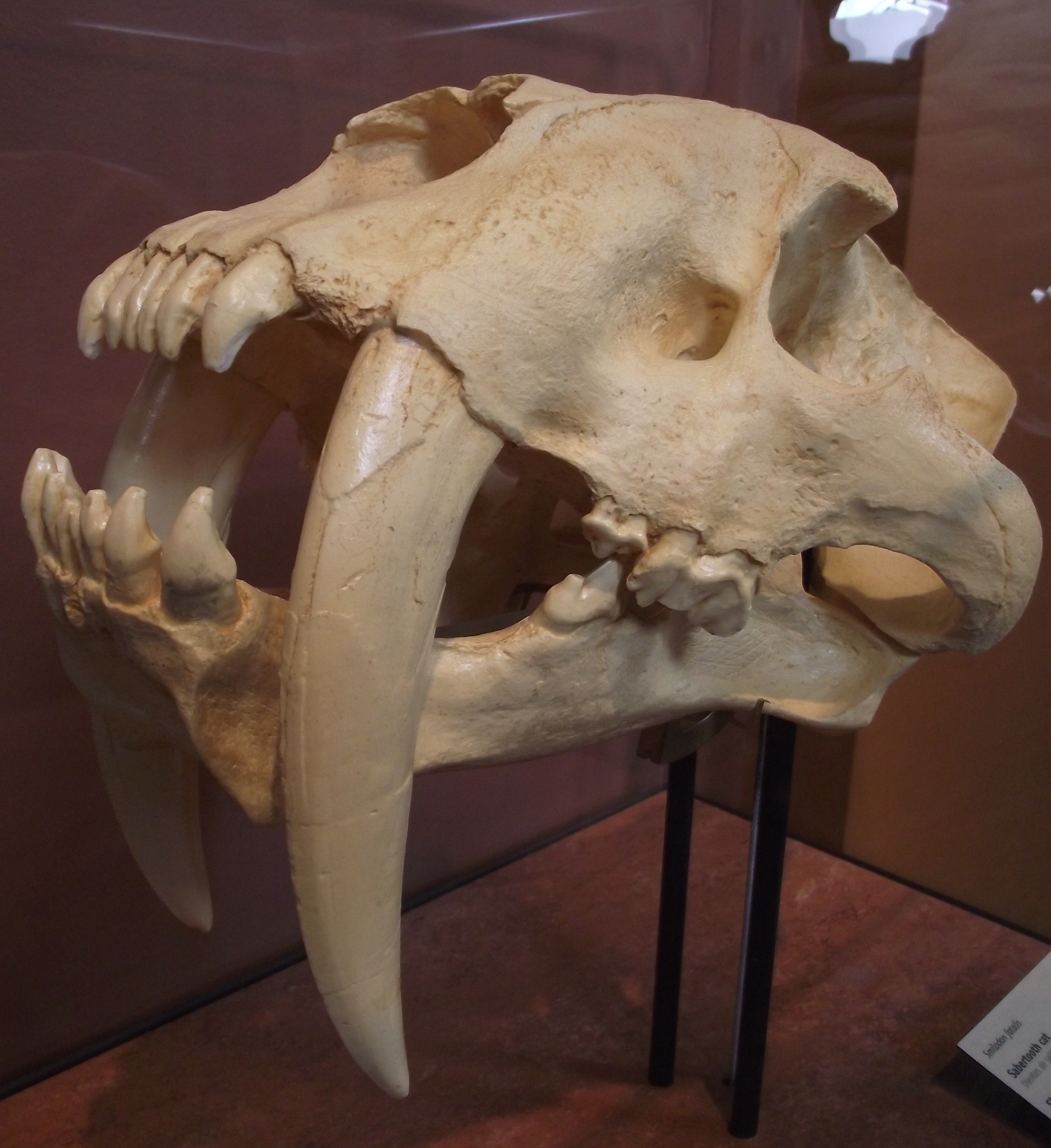 Why did American lions (Panthera
atrox, top left) and saber-toothed cats (alluringly named Smilodon fatalis, bottom left) go extinct some 12,000 years ago? One hypothesis is that
the predators fell on hard times as their prey was either culled by competing
humans or decimated by climate change. The rational behind this idea is that the
carnivores found at the La Brea tar pits (yes, I know how redundant this is) in
California had a lot of broken teeth. About 7% of modern big cats and 9% of
modern hyenas have broken teeth, whereas 36% of the extinct lion and 11% of
saber-toothed cats had broken teeth. This led researchers to wonder if the
large cats were forced to consume high amounts of bone as their prey
diminished.
Why did American lions (Panthera
atrox, top left) and saber-toothed cats (alluringly named Smilodon fatalis, bottom left) go extinct some 12,000 years ago? One hypothesis is that
the predators fell on hard times as their prey was either culled by competing
humans or decimated by climate change. The rational behind this idea is that the
carnivores found at the La Brea tar pits (yes, I know how redundant this is) in
California had a lot of broken teeth. About 7% of modern big cats and 9% of
modern hyenas have broken teeth, whereas 36% of the extinct lion and 11% of
saber-toothed cats had broken teeth. This led researchers to wonder if the
large cats were forced to consume high amounts of bone as their prey
diminished.
To be clear, the idea isn’t that
the cats died out because they kept breaking their teeth while eating bones. Rather, the broken teeth are an
indication that prey was scarce enough to discourage the predators from wasting any
part of a carcass. It was the scarcity of prey that drove the carnivores to
extinction.
So, is this idea correct? To find
out, Larisa DeSantis from Vanderbilt University and her colleagues studied the
fossilized teeth of the extinct cats. They used high-resolution scanning electron
microscope (SEM) plus dental microwear texture analysis to
determine whether the carnivores regularly consumed bones as well as flesh. The
teeth of bone-avoiding carnivores (like cheetahs) have fewer pits and more long
scratches than the teeth of animals that consume a lot of bone (like hyenas).
Both the American lion and the
saber-toothed cat consumed less bone than all modern cats except for cheetahs.
In addition, when the paleontologists compared the oldest specimens to the more
recent ones (just before the species went extinct) they found that bone
consumption had gone down, not up. The predators were not consuming more parts
of their prey.
However these creatures were
breaking their teeth, it wasn’t by eating bones. More significantly, this means
that times were not lean enough to force the large cats to consume every part
of their prey. So it’s back to the drawing board for both the cause of the
tooth breakage and the extinctions.
American lion skull photo by By Claire H., 10/10/2008.
American lion skull photo by By Claire H., 10/10/2008.

No comments:
Post a Comment